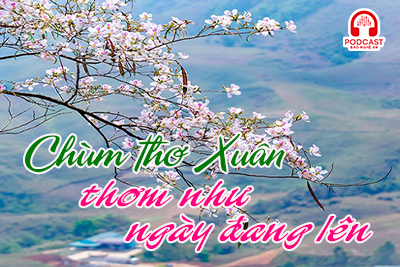Spring Poetry of Patriots of Nghe An
(Baonghean.vn) - As Confucian scholars, the patriotic scholars of Nghe An always had the qualities of a poet. On the patriotic journeys full of hardship and sacrifice, they always kept that quality.
Nghe An in the late 19th and early 20th centuries was a center of patriotic and revolutionary movements. Among them, the leadership role of patriotic scholars stood out. As intellectuals, they had a high sense of responsibility and a rich spiritual life. On the path of patriotic and revolutionary activities, no matter the circumstances, their souls could burst into poetry to express their feelings for the country and the people.
The patriotic scholars of the late 19th and early 20th centuries were intellectuals trained in the Confucian educational environment, participating in the imperial examinations, passing or not, with high or low scores. Later, many people came into contact with and absorbed modern knowledge, but deep down they always had a sense of responsibility to the country, to the people, to the progress of society. If before 1895, when the Can Vuong movement failed completely, the monarchical ideology was not completely powerless, then the responsibility to the country was linked to the duty of the mandarins to the king. Then, this concept changed in them, patriotism did not necessarily mean "can vuong" but reform to gain independence for the country, to build a new country under a new regime, a constitutional monarchy or, more progressively, a bourgeois democratic regime.
If at the end of the 19th century, Phan Dinh Phung was the leaderCan Vuong movement, then, at the beginning of the 20th century, together with Phan Chu Trinh - the leader of the Duy Tan movement, Phan Boi Chau was the flag bearer of the Duy Tan Association, the Dong Du movement, and the Viet Nam Quang Phuc Association. For Phan Boi Chau, it was also a continuous process of transformation in ideology, from monarchical ideology to bourgeois democracy and finally he approached socialism. The Confucian scholars, scholars of the same time, his comrades and fellow countrymen were also the same, most of them "renewed" their ideology to carry out their mission of saving the country.
As Confucian scholars, the patriotic scholars of Nghe An always had the qualities of a poet. On the patriotic journeys full of hardships and sacrifices, they always kept that quality. Literature always accompanied them. They wrote poems and prose to express their feelings for the country and the people, and to encourage patriotism among their compatriots. Every spring, their literary souls were awakened to sublimate with the qualities of a patriotic scholar.
Phan Dinh Phung(1843-1896), from Dong Thai village, now in Tung Anh commune, Duc Tho district (Ha Tinh), passed the Dinh Nguyen Doctorate exam in Dinh Suu year (1877). As an upright person, while holding the position of Royal Historian, he submitted a petition to impeach the civil and military mandarins who reported the shooting contest at Thuan An gate. In 1883, he opposed Ton That Thuyet right in the middle of the court about the dethronement of King Duc Duc. He was imprisoned in the royal prison, then dismissed from office and sent back to his hometown. In September 1885, King Ham Nghi went into exile to fight the French. Phan Dinh Phung was the leader of the Vu Quang uprising for 10 years (1885-1895).
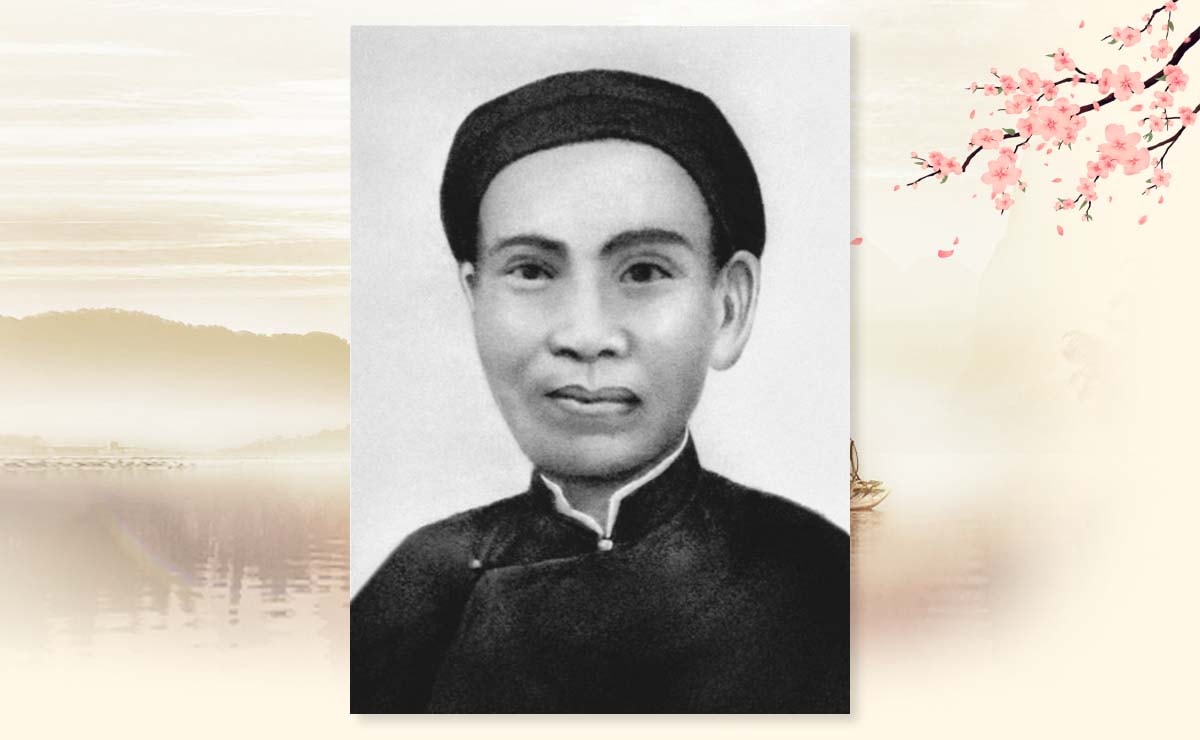 |
Phan Dinh Phung (1843 - 1896). Photo: Document |
Phan Dinh Phung did not write many poems. But during the Can Vuong resistance war, he left behind a number of works filled with patriotism and love for the people. On the occasion of Tet Mau Ty (1888), the uprising was going well, Spring was bright, but he was still worried about important matters and wrote the poem "Mau Ty Nguyen Nhat" (The first day of Tet Mau Ty):
"Out in the yard the oriole is singing on the flowers,
Spring flowers announce the arrival of the unborn.
Ngu Mountain, a hundred years of sadness and dazzling sunlight,
Thousands of miles of Hong wait for the clouds to cover.
That family tradition is all loyalty and filial piety,
In a foreign land, the heart does not fear separation.
Tet is coming, everyone is happy to celebrate Tet,
I alone am deeply saddened.
Nguyen Xuan On(1825-1889), from Quan Phuong village, now Dien Thai commune, Dien Chau district. He passed the doctoral exam, became an official but "did not learn the habit of cowardice and flattery". He opposed the court's policy of reconciliation with France, so he was dismissed from his position and sent back to his hometown. In July 1885, when King Ham Nghi fled, he and the scholars of Yen Thanh and Dien Chau organized an uprising and was assigned by King Ham Nghi to command the Can Vuong army in Nghe An. He was injured, then arrested and imprisoned in Hue, and died in prison in 1889. On the first day of Tet in the year of Mau Ty (1888), he wrote two poems while imprisoned in Vinh prison, including "Mau Ty nien nguyen dan, cam tac" full of the pain of the people who lost their country contained in the poetry of a rebellious scholar who refused to submit to fate.
"The trumpets and drums resound, the fireworks are rare,
The city gate was dark and bustling with Western trumpets.
All the good wine is gone, no New Year's greetings,
Recite random poems to get drunk.
The Summer Calendar has replaced the old dates,
Where is Chu land on this map?
The mandarins have their own private houses,
The peaceful sound of bamboo flies away again.
Phan Boi Chau(1867 - 1940), from Dan Nhiem village, Nam Dan, passed the National Examination in 1900. A great patriot, he was also a great poet. Poetry for him was a weapon to fight for the ideal of saving the people and the country. Poetry was also like a diary of his difficult ideological journey.
After founding the Duy Tan Association (1904), in early 1905, he wrote the song "Playing Spring" in the spoken song form:
"The king does not see the South, Spring has been full of famous scholars since ancient times
When you're in the spring, don't think about anything else.
When humming, mixing up the past and present
Eight realms thrown into one bag
Poetry says:
Hong Lac mountains and rivers will always be here
Heroic face can not bear this
The country still paints the faces of men
Born to change the times
Phung Xuan Hoi, maybe yes is easy
Five Earths is just a tiny bit
Kick open the two wings of heaven and earth
Bring spring back to the mountains and rivers of our homeland
Two shoulders shoulder the country
Played, played, oh my spring.
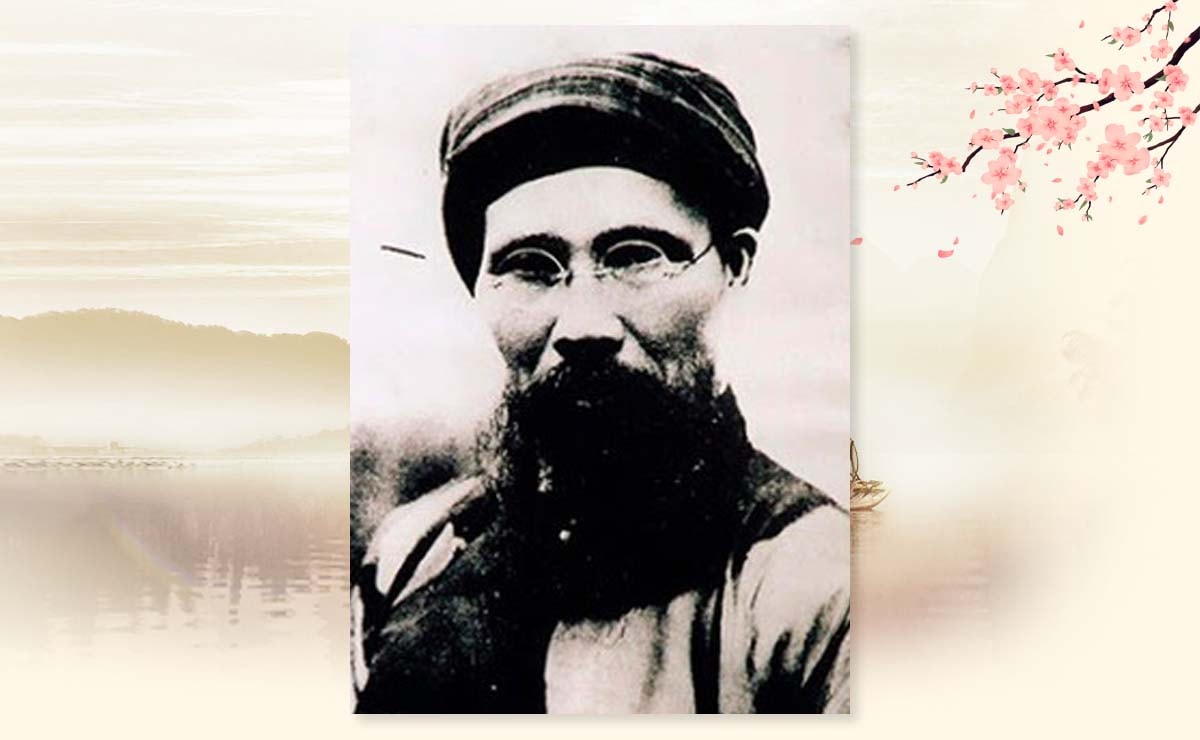 |
Phan Boi Chau (1867 - 1940). Photo: Document |
When he wrote this poem, he and the Duy Tan Association were preparing forces for the armed struggle for independence. He and the Duy Tan Association advocatedEastern Travel MovementSending young people to Japan to study. “Spring Play” is a poem to awaken the patriotic spirit of our compatriots, especially the youth.
The Eastern Journey failed, he took refuge in China for a while and then went to Siam to work. The Xinhai Revolution succeeded (1911), he returned to China and founded the Vietnam Restoration Association with the aim of restoring Vietnam, establishing the "Republic of Vietnam".
On December 24, 1913, he was arrested by the French colonialists with the help of the Chinese militarists. In 1917, he was released from prison and continued to seek a way to save the country. In mid-1924, he reformed the Vietnam Restoration Association into the Vietnam Nationalist Party. On June 30, 1925, Phan Boi Chau was kidnapped by the French colonialists in Shanghai and brought back to Vietnam, and brought to trial at the Hanoi Criminal Court. Faced with a massive protest movement throughout the country, the French colonialists had to announce his acquittal, but kept him under house arrest in Hue.
In the situation of "fish in a bowl and bird in a cage", he still wrote poetry and literature to denounce the feudal colonial government and awaken the patriotism of his compatriots.
On January 29, 1927, before the Lunar New Year, students of high schools in Hue asked Mr. Vo Liem Son, a patriotic figure and teacher at the National School, to compose a Ca Tru song to celebrate his birthday. On that occasion, he responded with a poem “New Year's Song for the Youth”:
Wake up! Wake up! Wake up! A rooster crowed at the table. The birds on the trees immediately welcomed us/ Spring, oh spring, do you know?/ Sad with the river, ashamed with the mountain, pitiful with the moon/ Twenty odd years have been bitter and painful/ Heaven and earth are lucky to still be alive/ Months and days of relief for the young people/ Ladies and gentlemen, and brothers/ Life is new, people should change even more/ Open your eyes to see clearly the new fortune/ Put your shoulders together to shoulder the old country/ Walk softly, stand firmly, stay brave/ The union is determined to succeed again/ Whoever is wise, from now on, please try hard/ Take off your old clothes and cultivate your spirit/ No need to play, no need to wear, no need to eat/ Forge an iron liver to move mountains and fill seas/ Pour hot blood to wash away the stain of slavery/ This is new, my lords/ The saying goes “day by day, new, again day by day”.
“New Year’s Song for the Youth” is Phan Boi Chau’s heartfelt confession to the young generation after nearly 30 years of struggling to save the country but his career was not yet successful. He awakened them from the dream of the nation’s long night of slavery.“Spring, oh spring, do you know?/ Ashamed of the river, sad of the mountain, sorrowful of the moon/ Twenty odd years have been bitter and painful”.Speaking to Xuan was speaking to himself and the youth about the pain and humiliation of losing the country and the duty to save the country and save the people. In particular, he not only called on the youth to love their country and devote themselves but also to innovate to succeed.“Life is new, people should change even more/Open your eyes to see clearly the new opportunities/Put your shoulders on the old country/Walk gently, stand firmly, stay brave/The solidarity is determined to succeed again…”.Perhaps Phan Boi Chau was the first to call for innovation. Youth must innovate their perspective, thinking, ideology and method of action.
Dang Thuc Hua(1870-1931), from Luong Dien village, now Thanh Xuan commune, Thanh Chuong district; passed the Baccalaureate exam, so he was called Tu Hua. In the early years of the 20th century, he participated in the Duy Tan Association and the Dong Du movement. In 1908, he went to Japan. When the Dong Du movement failed, he returned to China, then went to Siam with a number of comrades to open the Ban Tham plowing camp with the plan of "ten years of gathering, ten years of training" to prepare forces for the long-term fight against the French. In 1912, when Phan Boi Chau returned to China to establish the Viet Nam Quang Phuc Association, he stayed in Siam to receive young people from the country to study, train or send them to China.
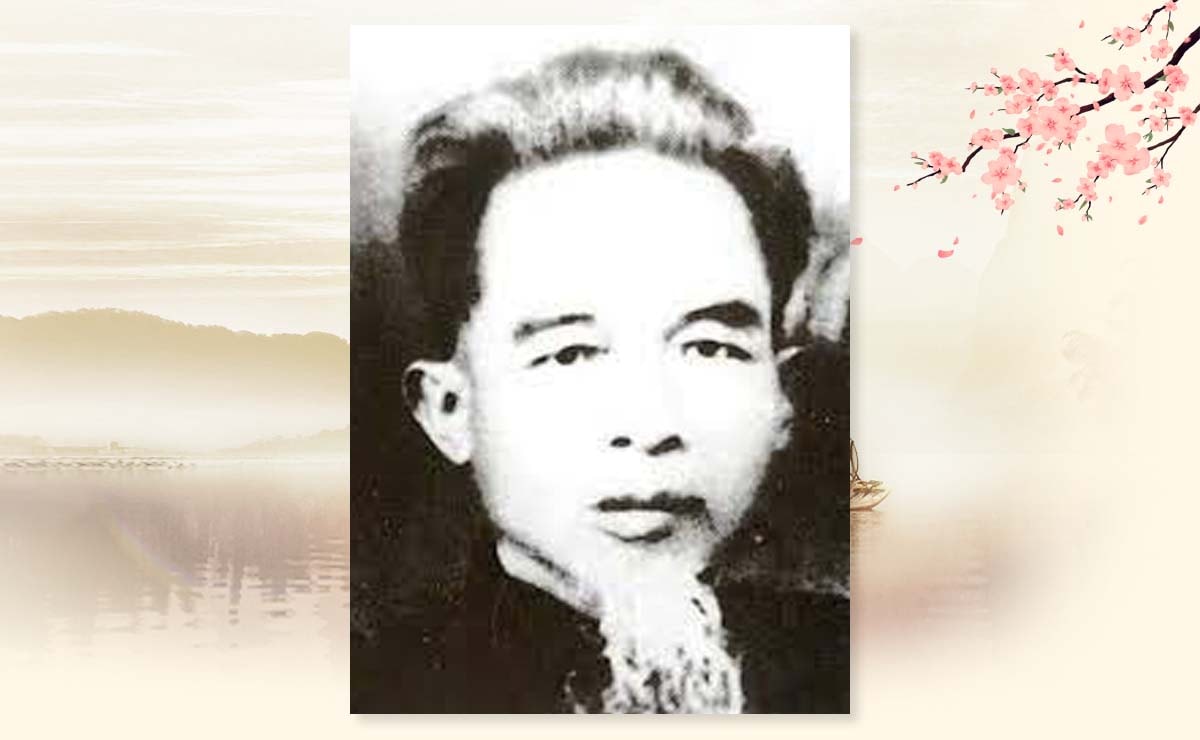 |
Dang Thuc Hua (1870 - 1931). |
During his 20 years of patriotic activities, he went from Duy Tan Association to Vietnam Quang Phuc Association and then Vietnam Revolutionary Youth Association. Finally, he joined the Communist Party of Vietnam in Siam. He died in Siam in 1931. He left behind a number of poems and prose, including the poem "Xuan Cam" written in Chinese, which translated the scene into poetry while in a foreign land, missing the country, pitying the fate of the country still under French occupation, and the people still suffering:
A foreign land for so long
Winter passes and spring comes again, my heart aches
Where is home in the vast ocean?
Three regions are foggy, where is the water?
The pink bird news has been missing for several times.
Five watches of wind and rain, durian guests,
That terrible revenge has not yet been paid,
Time flies and hair turns white early.
Dang Thai Than(1874 - 1910), alias Ngu Hai, from Hai Con village, now Nghi Hai commune (Cua Lo town). As a student of Phan Boi Chau, he became Phan's close comrade in Duy Tan Association. In 1905, when Phan Boi Chau went to Japan, he was assigned to stay and take care of Duy Tan Association's work. On February 2, 1910, he was surrounded and arrested by French secret police near Nghe An Citadel. He resisted, killed two of them, and then committed suicide by gun.
He left behind a number of poems and parallel sentences, which were copied by Phan Boi Chau in “Viet Nam Nghia Liet Su” and “Thi Tu Tung Thoai”. His poems expressed his patriotism and the spirit of a patriotic scholar. “Cam Ho” is a poem he wrote in 1905, expressing his love for the country, missing his teachers and friends when spring comes. “The poem has few words but has a natural, profound meaning” - Huynh Thuc Khang.
At night I hear the sound of waves a couple of times
Just learned that the east has the ocean
Borrowing the spring breeze to believe in you,
I'm scared of you.
Tran Dong Phong(1887 -1908), born into a wealthy family in Thanh Chuong district. Tran Dong Phong joined the Duy Tan Association, was arrested in 1907. Then he escaped and went abroad to Dong Du in 1908. In Japan, witnessing the hardship and deprivation of Dong Du students, and feeling sad and ashamed because his parents did not send money to support the movement (because their letters were blocked without him knowing!?), so on May 2, 1908, he committed suicide at Tohoji Temple (Tokyo).
During his lifetime, he composed a number of poems, including “Impressions of Spring” which recorded his feelings of homesickness when watching Japanese girls shopping for Tet in the brilliant cherry blossom forest. Despite his overwhelming sadness, he still believed in the bright future of his homeland:
“Are cherry blossoms beautiful to anyone…
Cherry blossoms are not beautiful to those who live far away from home!
After the two introductory sentences, he continued:
Already sad… spring comes and it's even sadder,
How sad to adventure in a foreign land!
Fuji is not covered by clouds in Tan Linh,
Cherry blossoms do not turn into willows in Hong Son.
The South Sea waves of suffering still have many waves,
The East Sea still rains sorrow several times.
The second water day sings independently,
The whole spring of Hong Lac welcomes spring.
Nguyen Dinh Kien(1879 - 1942), from Xa Lang village, now Son Tan commune, Huong Son district (Ha Tinh); passed the Bachelor's exam so he was called Tu Kien. He participated in the Vu Quang uprising, the Duy Tan movement to collect taxes, fight against taxes, and cut his hair short in the years 1905 - 1908.
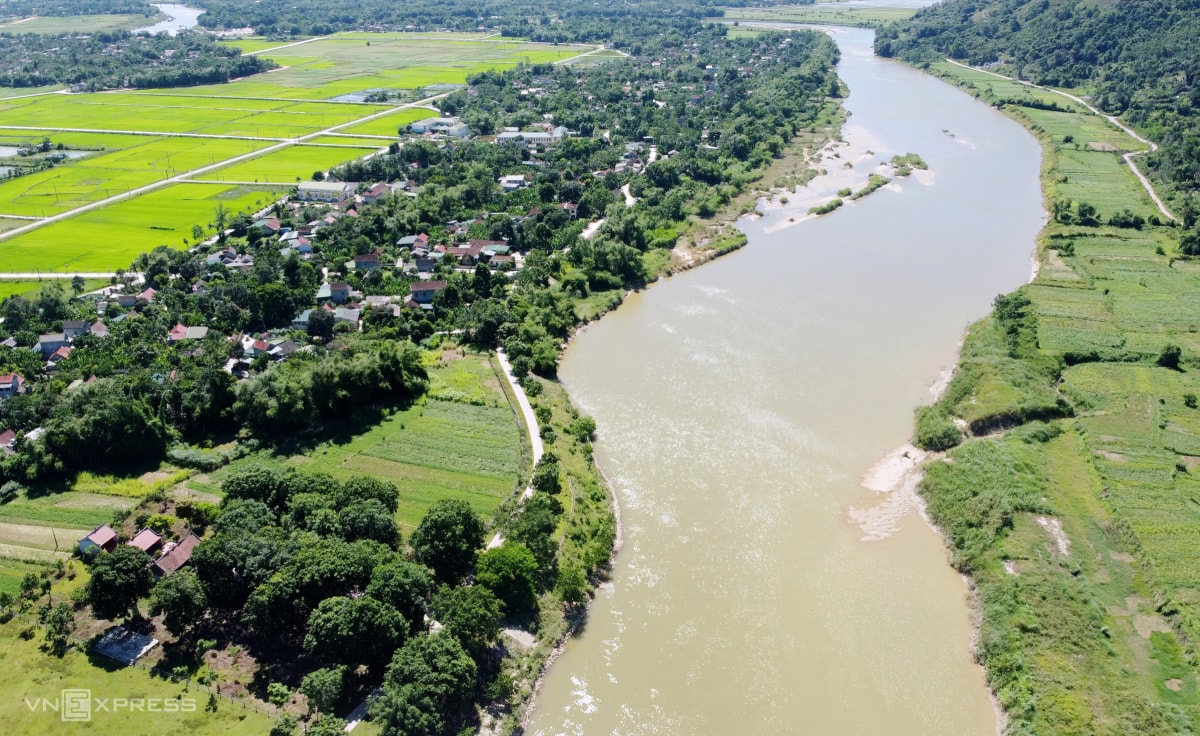 |
Ngan Pho River, Huong Son Commune, Ha Tinh Province. Photo: VnExpress |
Exiled to Con Dao in 1910, he escaped from prison to the mainland and then went to China to join the Vietnam Restoration Association; he was arrested again in Shanghai, sent back to Vietnam and exiled again to Con Dao. In 1925, he was released and joined the founding of the Hung Nam Association/Tan Viet Party. In 1929, he was arrested again and imprisoned in Saigon. In 1933, he was released and continued his revolutionary activities in his hometown. He died in 1942. During his patriotic and revolutionary activities, he composed many poems and prose. "Mung Xuan" is a poem he wrote in prison in 1933.
Fireworks celebrate spring everywhere,
I am a lazy person.
The body is worn out and imprisoned several times,
Thoughts are boundless in all directions.
North and South two roads love those people,
The country is a burden to life.
As long as six races of people live in the same market,
Tet holiday then leisurely.
The patriots’ careers were not successful, but their patriotism, their will to save the country and their literature will shine forever in the history of the nation. For them, literature and life are one. Poetry is a boat carrying emotional details, a bird spreading ideas. Patriotism and love for the people are the first and greatest creative inspiration in their poetry; full of love and strong spirit like themselves.


